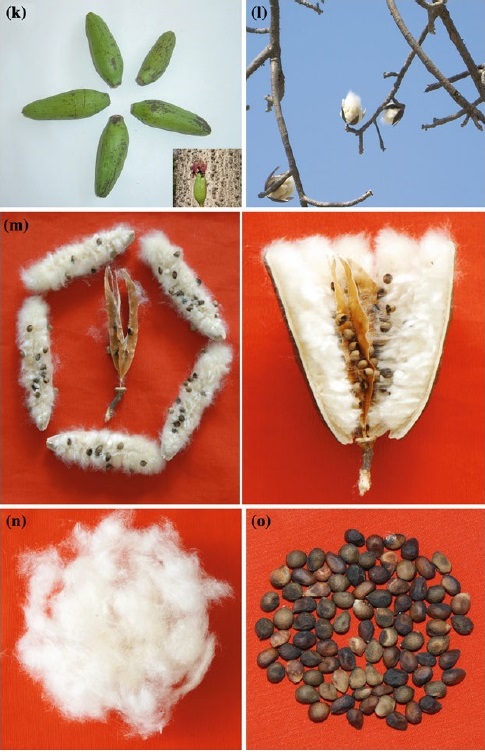
[सूत्र]
‘स्वतन्त्र’ और ‘स्वतन्त्रा’
“जयतात्संस्कृता भाषा जयताद्भारतं तथा”।
आज भारत का स्वतन्त्रता-दिवस है। आज के दिन जन्मे बालक के लिए ‘स्वतन्त्र’ और बालिका के लिए ‘स्वतन्त्रा’ नाम उपयुक्त है। ये दोनों नाम पौराणिक और अन्य सहस्रनामों में प्राप्त हैं।
१/बहु
‘स्वतन्त्र’ और ‘स्वतन्त्रा’
“जयतात्संस्कृता भाषा जयताद्भारतं तथा”।
आज भारत का स्वतन्त्रता-दिवस है। आज के दिन जन्मे बालक के लिए ‘स्वतन्त्र’ और बालिका के लिए ‘स्वतन्त्रा’ नाम उपयुक्त है। ये दोनों नाम पौराणिक और अन्य सहस्रनामों में प्राप्त हैं।
१/बहु
गणेश-पुराण के गणेश-सहस्रनाम में ‘स्वतन्त्र’ गणेश का नाम है। “स्वतन्त्रः सत्यसङ्कल्पः सामगानरतः सुखी”। इस नाम पर भास्करराय खद्योत भाष्य में लिखते हैं—“स्वतन्त्रः स्वयमेवासि नानातन्त्रात्मना यतः”, अर्थात् जो स्वयं नाना तन्त्रों के आत्मा (=सार) सहित हैं वे ‘स्वतन्त्र’ हैं।
२/बहु
२/बहु
इसके अतिरिक्त मन्त्र-महार्णव में प्राप्त हनुमत्सहस्रनाम में ‘स्वतन्त्र’ हनुमान् का नाम है। “नन्दीप्रियः स्वतन्त्रश्च मेखली डमरुप्रियः”।
ब्रह्माण्ड-पुराण के ललिता सहस्रनाम में ‘स्वतन्त्रा’ देवी ललिता का नाम है। “स्वतन्त्रा सर्वतन्त्रेशी दक्षिणामूर्तिरूपिणी”।
३/बहु
ब्रह्माण्ड-पुराण के ललिता सहस्रनाम में ‘स्वतन्त्रा’ देवी ललिता का नाम है। “स्वतन्त्रा सर्वतन्त्रेशी दक्षिणामूर्तिरूपिणी”।
३/बहु
भास्करराय के अनुसार इसके अर्थ हैं—
(१) “कारकपारतन्त्र्यमन्तरेणैव सर्वकर्तृत्वात्स्वतन्त्रा”, अर्थात् जो किसी कारक के पारतन्त्र्य के बिना ही सब कुछ करने वाली हैं।
(२) “स्वतन्त्राख्यनित्यातन्त्ररूपा वा”, अर्थात् जो ‘नित्या-तन्त्र’ नाम से ख्यात ‘स्वतन्त्र-तन्त्र’ स्वरूप हैं।
४/बहु
(१) “कारकपारतन्त्र्यमन्तरेणैव सर्वकर्तृत्वात्स्वतन्त्रा”, अर्थात् जो किसी कारक के पारतन्त्र्य के बिना ही सब कुछ करने वाली हैं।
(२) “स्वतन्त्राख्यनित्यातन्त्ररूपा वा”, अर्थात् जो ‘नित्या-तन्त्र’ नाम से ख्यात ‘स्वतन्त्र-तन्त्र’ स्वरूप हैं।
४/बहु
(३) “स्वान्यात्मीयानि तन्त्राणि यस्या वा, शैववैष्णवगाणपतादितन्त्रेष्वप्यस्या एव विभूतीनां प्रतिपादनादात्मीयत्वमिति भावः”, अर्थात् शैव, वैष्णव, गाणपत आदि समस्त ‘तन्त्र’ जिनके ‘स्व’ (आत्मीय=अपने) हैं।
५/बहु
५/बहु
(४) “स्व आत्मीयः स्वाधीनः परशिवस्तत्तन्त्रा तदधीना वा”, अर्थात् जो ‘स्व’ अर्थात् आत्मीय = सदाशिव के ‘तन्त्र’ में हैं (=अधीन हैं)।
आप सबको स्वतन्त्रता दिवस की शुभकामनाएँ।
बहु/बहु
आप सबको स्वतन्त्रता दिवस की शुभकामनाएँ।
बहु/बहु
• • •
Missing some Tweet in this thread? You can try to
force a refresh










